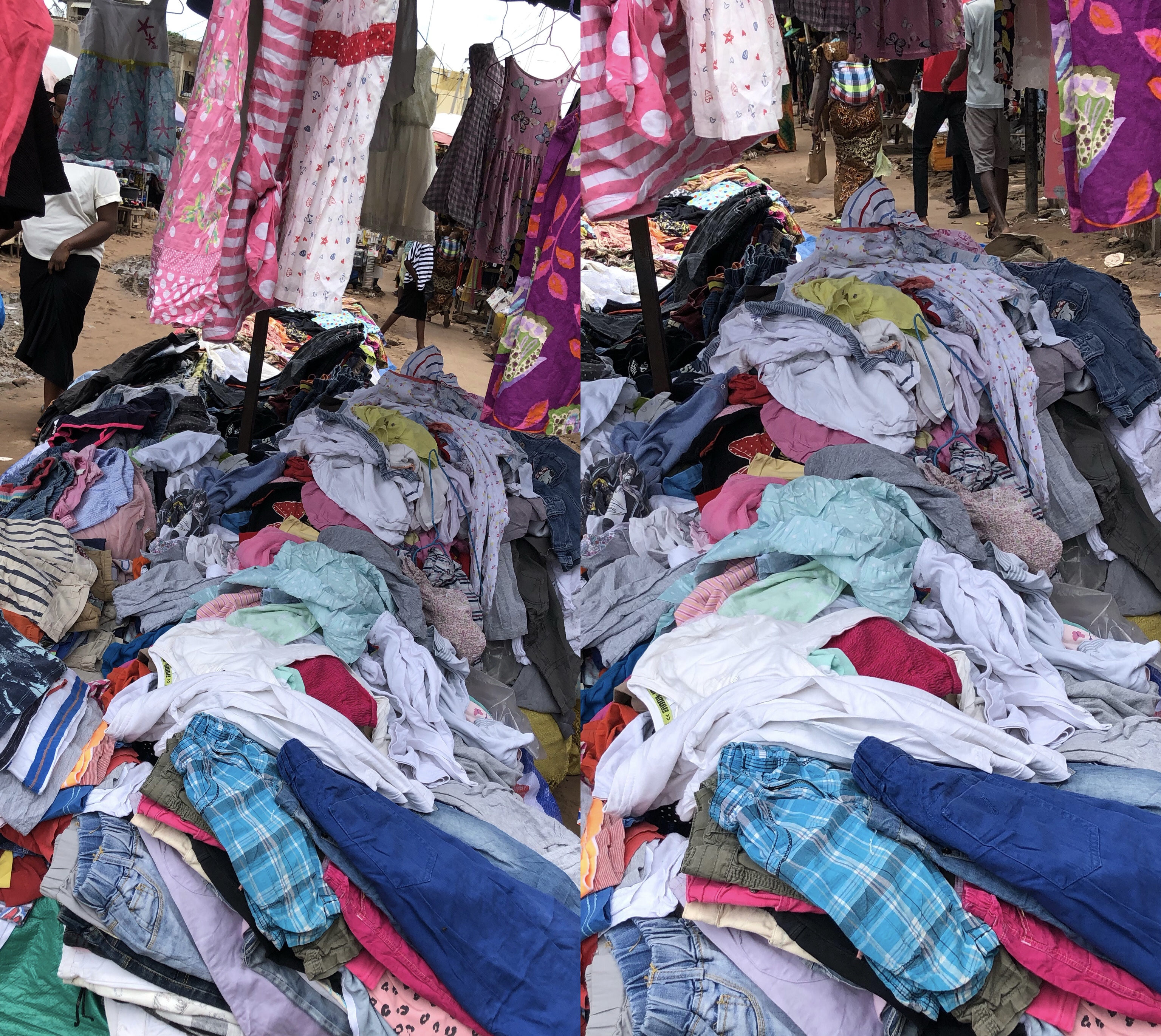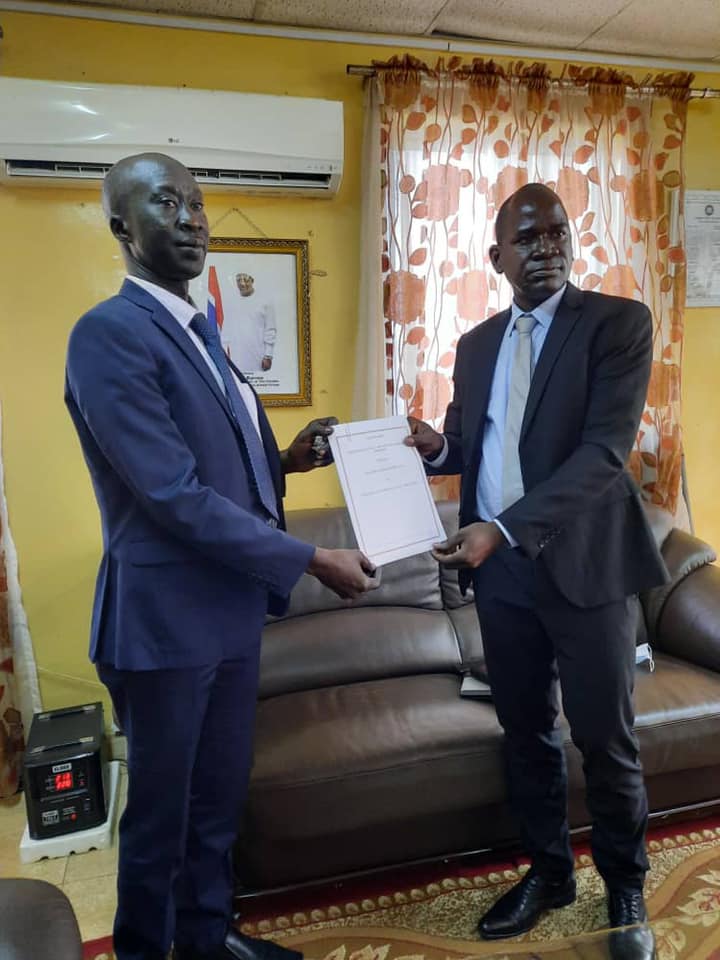By Nyima Sillah
Looking into how Covid-19 has impacted the Micro Small and Medium-Sized Enterprises (MSMEs) in The Gambia, an economist has suggested the need to have a Covid-19 National Recovery Strategy for the MSMEs that should be developed after a thorough and inclusive impact assessment. This he saidwill enable all stakeholders to determine what support is needed to help MSMEs to recover from the impact of Covid-19.
Kawsu Fadera, Manager, Gambia Youth Chamber of Commerce explained that the impact of Covid-19 on businesses especially MSMEs cannot be overemphasized. Noting that some of the businesses experienced a loss of revenue for about 60-75%, while some had to cut staff and a good number of startups had to go out of business.
However, in The Gambia, import and export of goods and services, one of the sectors that contribute high income to the Gambia’s GDP annually; since the Coronavirus pandemic hit the country, 17th March, 2020, the sector is in dire strait as many of the women who derive their daily income from the sector are suffering. Good example of this is women in secondhand clothing business.
Secondhand clothing materials known as ‘fukajai’ in local parlance is a longtime standing business in The Gambia, people wear them more often than traditional materials, it is of good quality, cheaper, durable and attractive to customers.
However, most of the secondhand clothe vendors are youth and basically women. But, since the pandemic was discovered in The Gambia, the business is been seriously hampered due to limited importation and supply of ballots/bails of the second hand clothes compared to two, three years ago. More so, the misinformation and disinformation surround the pandemic is another issue.
Vendors Problem
Mama Ndow is one of the secondhand clothe vendors she is been doing the business since she finished her secondary education. She was introduced to it by a neighbor, she lamented that Covid-19 is hampering their business. This has led to massive lost of profit as their businesses standstill for about a year now.
One of their problems, as she explained, include public concept about the secondhand clothe in this period of Covid-19, “people are afraid of buying them they said ‘secondhand clothes are coming from the Covid-19 hard it countries in Europe.”
Abi Njie is another vendor selling in Latrikunda since 2009, sharing her business experience in this period of Coronaviruspandemic she said “there is a huge different in the business since the outbreak of Covid-19. Businessmen now joined in selling of secondhand clothes when this Covid-19 pandemic started. This has really affected our business by taking it far back.”
She continued that number of people that come to buy secondhand clothes since the outbreak drastically reduced compared to the past. This she has described as a big hindrance to their business.
More so, she said social media is another enemy to their business in this period of pandemic disclosing that there is different misinformation circulating through social media that “secondhand clothes are contaminated with Covid-19 virus. Some say the clothes importing to the country belonged to some of the people who have died of Covid-19 related cases.”
But to Aminata Kanyi, “there have been a lot of changes in the business since 2020, with lots of difficulties because in these recent times, goods are very expensive and people do not buy things as they usually do like before, a cause for concern.”
According to her, the pandemic stops everything, they hardly sell and as a result of that, they are not having money to buy new ballots or bails of clothes from the importers because customers aren’t buying like before. Some, as she said, would rather go buy food because they said it is more of a concern considering the situation of the pandemic.
Breaking down the cost of the secondhand clothes, Aminataexplained that they buy ballots of the secondhand clothe based on qualities which ranges from D10,000, D13,000 or D15,000 and when selling them to consumers/users, they sell in cheaper rate starting from D25 upward.
However, some buyers/users commented that secondhand clothes are always their favorite “because they are beautiful and unique so I always patronize secondhand clothes shops especially during occasions like inter-house event, feast and summer times. But since the pandemic started, my Mummy discouraged me from buying them to avoid infection from the Coronavirus.”
“Anyway, nowadays, it becomes so expensive that I don’t buy even though I like to wear them,” she added.
Most of these secondhand clothes are also good enough to wear to office as confirmed by Yama Sowe who used to buy at cost price of D25 or even D10 “and they are unique. Sometimes I even wear them when going to work. But now I buy one shirt for nothing less than D150 or more. So I have to reduce my shopping spree at secondhand clothe shops.”
She noted that kids too like them and to parents they are cheaper and more unique “but frankly speaking the pandemic messed up everything because it’s been over 9 months since I last buy.”
Health Expert Remarks
Dissuading misinformation and disinformation about the pandemic, Gibril Gando Baldeh, a Senior Health Communication Officer at Ministry of Health explained that people should understand that coronavirus is mostly transmitted through three major areas which is nexus-membrane of the mouth, nose and the eye.
These are the three major areas that the virus most reach for one to be infected and when it gets to the respiratory system that is where it multiplies from the throat to the chest and other parts where the virus would want to stay.
“When it comes to second hand clothes, we are made to understand that there is no scientific evidence that says just wearing clothe can make you become infected by Covid-19,” he divulged.
The fact about it is that this virus can stay on clothing materials for three to four days but it is good to know that secondhand clothes are from Europe and it takes three weeks or one month before they reach sale destinations.
“In that case I see no linkage between infection and usage of second hand clothes. Maybe people are too cautious knowing that coronavirus kill more people in Europe and America than anywhere in the world.” Well that reason can make some people more skeptical or to be doubtful in buying second hand clothes.
People should understand, he said, that when it comes to second hand clothes especially during this pandemic, there should be a way in dealing or handling or sell them as far as transmission is concern.
“I think it will be proper now during this pandemic if anyone going to buy secondhand clothes or going for shopping either at the secondhand shops or market, medically, it is advisable they should protect themselves first. Wear your facemask, hand glove or use hand sanitiser before and after touching them, and also separate the clothes from other materials and at home quarantine those clothes for three days; wash with soaps and iron before wearing them.”
Economist Remarks
Madi Mangan, an Economist said the impact of Covid-19 on markets is absolute obvious, besides the effect of border closures, reduction in internal movement within The Gambia, and national restrictions due to Covid-19 affects trade volumes in all sectors of the economy. Therefore they wouldn’t expect any less effect on a market such as that of secondhand clothing business.
“Like the broad market of wholesale and retail trading which declined by 4.7% in 2020 (GBoS National Accounts 2021), this market is characterised by high human interactions which is highly reduces during the pandemic.”
Mangan explained further that besides the internally generated impact due to restrictions on trading activities, and panic and expectations, the Coronavirus pandemic also has an eminent effect on large countries. And The Gambian populates is highly dependent on imported goods for its day to day consumption, linking the country directly to the harsh impact of declines in trade flows in exporting economies. The impact of which is seen in the form of shortages in supply and a subsequent rises in prices of imported new and secondhand clothes.
He further explained, “Given the adverse effect on trade, dealers in the trade of secondhand stuff are not at all spared. Besides the share effect by the importers of these items, small vulnerable dealers who are of more concern are always venerable, with very little reliance on any other form of assistance.”
Therefore, it is worth mentioning that one would have indeed expected that the demand for secondhand clothing will not face so much of an adverse effect due to Covid-19 (the good is mostly inferior, it is demanded more when incomes fall). But, “most traders of secondhand clothing are of weak capital status and are vulnerable, they are not able to survive long closures of markets, as such are not able to return to market when the economy recovers,” Mangan disclosed.
However, Kawsu Fadera emphasized that the best thing government could do is to launch a Covid-19 MSMEs recovery fund. This can be in form of a grant or revolving loan without interest for businesses community to access to rebuild the businesses.
This story was produced with support from journalist for Human Rights (JHR) through mobilizing media in the fight Against Covid-19 in partnership with Mai-Media and The Voice newspaper.




